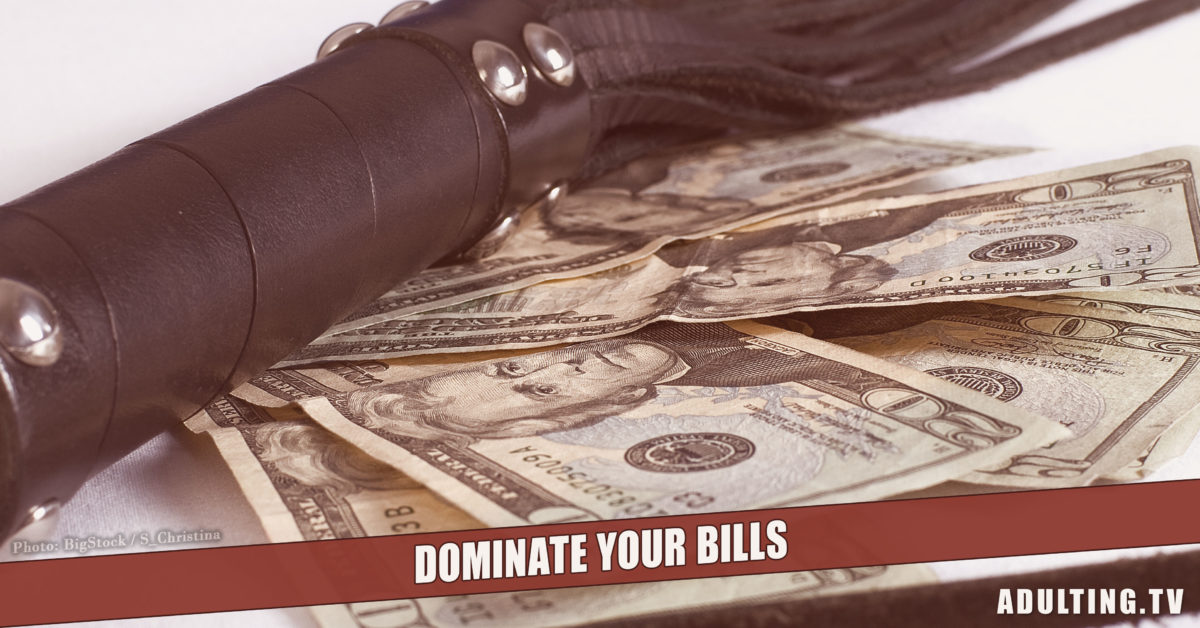It’s tough for many of us to accept, but for most of us, our financial security is not contingent on how much money we earn.
It’s not about how much money comes in but how much money goes out. For most of us, our lifestyle increases with increases in our income – and even increases in our available credit.
When you tie those increases in income to increases in spending, pretty soon you have this problem: Could a promotion make you poor?
Learn from others’ wins and losses.
How many celebrities and athletes who earn millions of dollars a year have we heard have gotten into financial trouble?
From MC Hammer to Johnny Depp to Lenny Dykstra to Marion Jones, the world is full of millionaire income earners with no money in their bank accounts. A couple of years ago, it was reported that about 80% of retired NFL players go broke.
On the other end of the spectrum, Oseola McCarty, a former washerwoman from Hattiesburg, Mississippi bequeathed her $150,000 fortune to the University of Southern Mississippi. At the time, she was its most famous benefactor. That $150,000 in 1999 would equal $220,957 today.
To be sure, $150,000 or even $220,957 isn’t millions of dollars. But considering McCarty’s low-wage paying job and the fact that 47% of Americans today can’t come up with $400 cash, that’s a solid amount of savings.
Likewise, consider Ronald Read, a former gas station employee and janitor. When Read died at 92 in 2014, he was worth an estimated $8 million. Read was an avid and consistent investor and lived frugally, way more frugally than I ever would. But he’s another example that it’s not about how much money you earn. It’s what you do with the money you make.
With your next raise or promotion, will you do better than McCarty or Read?
Know if you’re on a cycle of rinse, recycle, repeat.
Most of us go about making a living instead of making a life.
We go to school to get the best job we can to make the most money we can and then, for any number of reasons, spend all the money we can and then spend more money than we have. Despite each promotion and each raise, we eventually find ourselves living beyond our means.
Today we finance our phones, our music, our education, our homes, our vacations, our everything. The problem is that a growing number or economists are becoming convinced that prosperity is contingent on our property rights.
Property rights usually relate to law. However, it’s logical to conclude that if we give up our property rights by financing from the cradle to the grave everything we would otherwise own, our affluence will suffer the same negative consequence as if we had no legal rights to ownership.
If everything from music to television to mortgages to education is on a small, affordable monthly payment, when do we stop making payments and start amassing wealth? What do we pass to our heirs for our family’s long-term financial security?
Jim Rohn said, “Once in a while, somebody says to me, ‘Boy, if I had a million dollars, I’d never work another day in my life.’” He goes on to say, “That’s probably why the good lord sees to it they don’t get their millions.”
With your next raise or promotion, how long will it be until you’re back in the same financial position?
Know why you should do well.
I read and listen to a bunch of personal finance information, and it astounds me how I keep returning to the same conclusion. Financial success, even life, personal, career – any success – is contingent on your purpose or your ‘why.’
As I’ve shared here, my husband and I amassed $51,000 worth of credit card debt – despite knowing better and notwithstanding the fact that we could do better.
At the time (and like many people today), we were unsatisfied with many aspects of our lives. It’s important to acknowledge that our economy is designed to keep us feeling unsatisfied.
Television, the internet, Facebook, movies, magazines and everything else tells us that we need more of this, that, and the other thing to feel happy, feel good, be liked, or be like someone else. When everyone in the neighborhood is drinking this Kool-Aid, it’s hard not to take a sip.
For this reason, the best thing we did to turn our financial situation around was to decide what we most want and not what we think we should want or what others want for us.
When we realized our most important goals, everything came into perspective, and we could manage our financial lives accordingly. It’s because we know our purpose that we’ve turned our $51,000 deficit into a $700,000 surplus and now work for ourselves.
Learn how you can do better, even without a raise or promotion.
How do you figure out your most important goals? For us, we did a lot of personal reflection and had lengthy discussions about what we most want in life. Everything we said was put on the witness stand and cross-examined until our purpose came down to three things. For you, it may be more or less, but if it’s too much, it’s too broad.
Next, we assessed what it was that was blocking us from our primary goals. Everything from not paying attention to our cash flow to being insecure came up.
Finally, we decided what it was we were willing to do to overcome those blockers. This step helped us determine how committed we were to change our situation and lay the foundation for a strategy.
Just as climbing the corporate ladder won’t solve all your problems, your next promotion or raise won’t make you rich. In fact, your next promotion might make you poor. What happens when you get a raise or promotion and you spend right up to it? What happens when you have a vision of the things you “should” have with your fancy new job title?
It’s easy to get caught up and overspend because we have the idea that’s what you do when you get a promotion. But that thinking just puts you back where you were – or even makes things worse financially.
When we realize that it’s not external factors or our circumstances that dictate our success, but our choices and behaviors, that can be better than any promotion.






